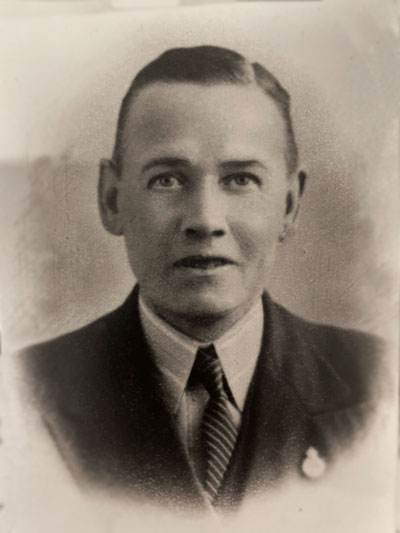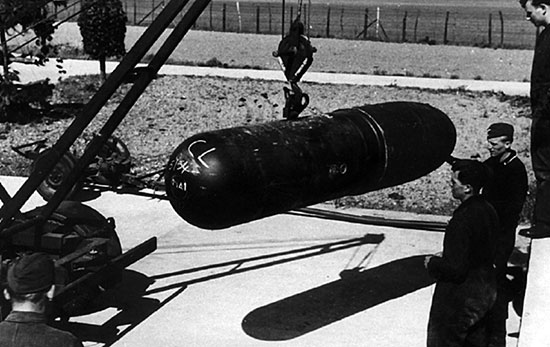

In the police roll of honour it is recorded..Special Police Sergeant Donald MacDonald. Died as a result of enemy action during an air raid, 13 March 1941.
On the 13th March 1941, a few minutes past 9pm, the eerie wail air raid sirens filled the Clyde valley. Bombs began almost instantly to fall on the small industrial town of nearby Clydebank.
It was the practice in war time, that off duty police, emergency services and air raid personal immediately went ‘on duty’ in their local area when the warning siren sounded. Special Police Sergeant Donald MacDonald would have followed this routine…most likely after settling his family into their back garden Anderson shelter. No great rush there had been many false alarms before.
All around the city people would be directed to their allotted shelters. Dudley Drive, in the city of Glasgow, did not have street shelters at that time…they were built the following year. The majority of Dudley Drive’s occupants travelled the short distance to shelters in the grounds of nearby Anniesland school.
Many opinions as to where the safest place to be during a raid were openly discussed. One of the favoured, the bottom flat in a tenement. Particularly the hall area, without windows, deep in the building, safe from the effects of blast. A bomb penetrating 4 storeys of a robustly built Glasgow tenement seemed a unlikely outcome for civilians without experience or ordinance knowledge. Some Dudley drive resident chose this shelter option and regrettably perished.
His duties done, shelters filled, Donald would be patrolling the surrounding streets. Now empty, his new task, to report incidents to a central command. All around him the clatter and tinkle of falling shrapnel from Anti Aircraft fire, an ominous red glow to the West as Clydebank burned and the ever present rumble of distant exploding bombs.
The Clyde valley is a lava plateau. The shockwaves of every explosion would be felt and heard over the 5 miles distance.
It was at 11.30pm, 2 1/2 hours into the raid when Donald reached Dudley drive. He would have heard 3000 mtrs above the unsynchronised growl of two labouring aircraft engines. He would also have heard their change in tone as the aircraft released its deadly cargo, a 1000Kg Luftmine. A few seconds loosed from its aircraft a domed cap would be wrenched from its tail releasing a parachute, quickly a 8 meter wide dark green canopy would fill, taking the strain of the 1000 kilo mine suspended below, its flight now stabilised and its decent slowed to brisk 60 kmp. It would take around two and a half minutes for it to descend to earth, the bomber that released would be long gone, it’s mission complete, heading home.
 |
| A 1000Kg Luftmine being unloaded, March 12, 1941. 'CL' written in chalk designates its destination as Clydeside. |
On the 13th of March the chilly night sky was clear and bright. A full moon cast long shadows across city streets, a gentle easterly breeze drifted across the city. This Luftmine would not deviate far, it’s descent would be almost vertical.
It is impossible to know exactly the moment Donald sighted the descending mine. It was the practice to paint the bright aluminium casing ‘dunkelgreen’ or matt black or night missions in an attempt to make it invisible to probing searchlights when tethered to its bomber.
Luftmines were sea mines, designed to break the backs of ships by creating a shockwave and blast of enormous magnitude. Their main charge of Hexamite, equivalent to 767kg of TNT produced a detonation wave travelling at 7100 meters per second and pressure of 20,000 atmospheres. When the mine landed in water it would sink to the bottom. If the depth was greater than 2.4 meters, water pressure and a dissolving watersoluble plug would deactivate the clockwork detonator, and activate an anti-shipping detonator
The mine crashed into the street outside number 10. The smashing of a 1000Kg cylinder into the road at 60kpm would have created a impressive impact. Then, there would have been a silence…. Deep within its cylindrical body a clockwork fuse now set in motion would start to tick, the mine would detonate in 25 seconds.
It was reported that Donald was last seen running along Dudley Drive shouting for all to take cover. It says much of the man that his first motivation was to protect others rather than seek his own safety.
25 seconds is a long time…or a very short time?
When the mine exploded, in 1000th of a second a huge expanding ball of orange flame would have filled the drive….numbers 8, 10 and 12 shattered and disintegrated. On the opposite side of the street two tenements were consumed. 30 human beings instantly died. Donald amongst them. All along the drive windows and doors would be blasted in, ripped back to the brick. A intense heat, 6,000 degrees farenheight, would incinerate all in its path. Nothing living would survive 200 meters from the centre of the explosion.
As the blast spread, its devastating force would be channelled, ricochetting and deflecting along the heavily built sandstone drive, penetrating even the most sheltered corners, 17 were seriously injuring in its spreading wake.
As the blast wave subsided the vacuum that followed would have sucked out windows. Shattered glass splinters suspending in the air, a shimmering cloud of razor edges, would injure many more and for a distance of 1 mile windows would disintegrate.
In an industrialist city, where the supply of ash and cinders is endless, tenemented properties in Glasgow were filled with this material to serve as soundproofing. The air would be filled by a dense grey fog of fine ash, flames would tint the scene, the devastation horrific. An eerie silence would follow …occasionally punctured by the sound of falling debris, the injured, stunned, would take many minutes to come to terms, their pain numbed by shock.
The number of lives saved by Donald’s action is unknown. The crashing mine would have aroused the curiosity of many. Had they not been warned of what was to soon follow many more death would have been certain.
Special Police Sergeant Donald MacDonald was buried with ceremony, as befits his rank and social position. While others simply disappeared Donald's remains were found…It is most likely that he would have been killed by blast. He must have been close to the explosion…his death would have been instant.
In the service of his duty Donald paid the ultimate price. In the police roll of honour it is recorded..PS Donald MacDonald. Died as a result of enemy action during an air raid, 13 March 1941. It is a declaration perhaps too short in detail.
 A story of a loss on duty.
A story of a loss on duty.